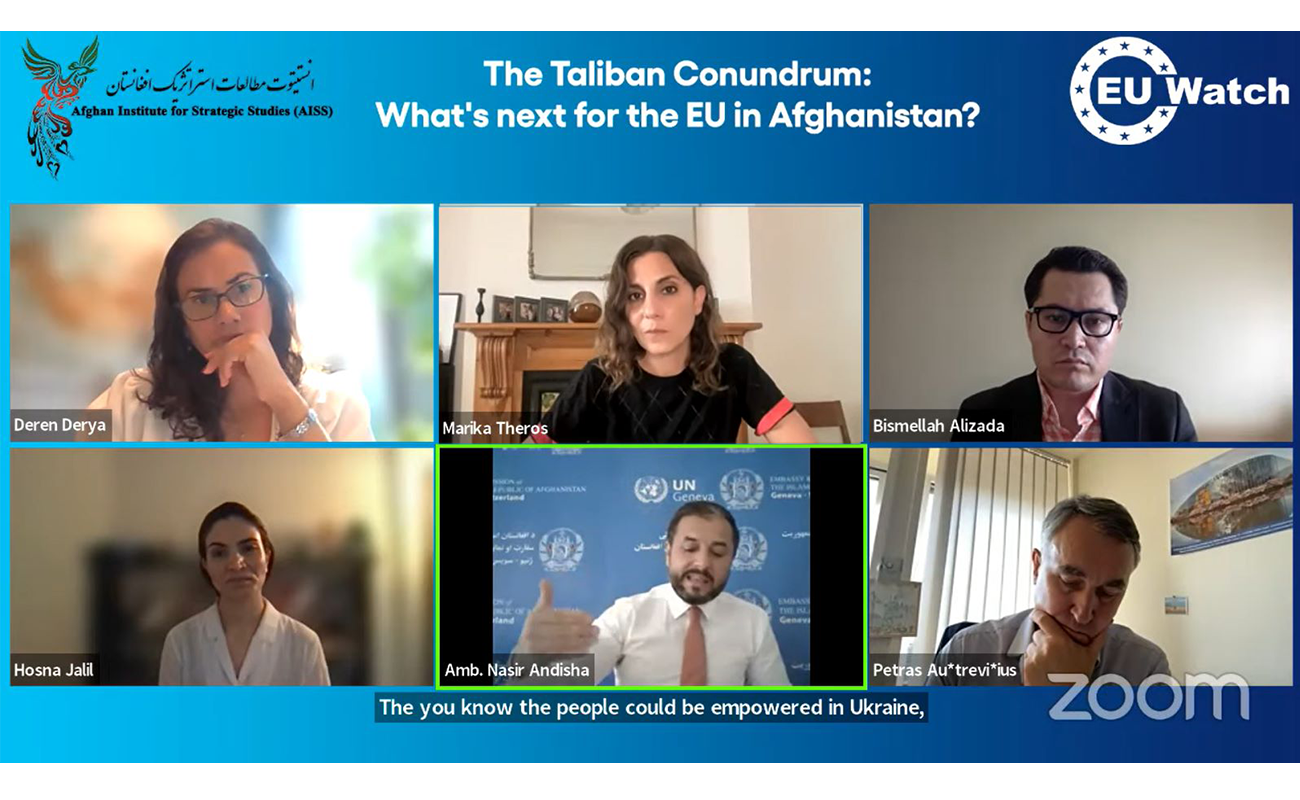Webinar Discussion on The Taliban conundrum: What's next for EU in Afghanistan?
On the 13th of June, the joint zoom webinar 'The Taliban conundrum: What's next for EU in Afghanistan?' between Afghan Institute for Strategic Studies-AISS & EU Watch took place.
The webinar has been moderated by Marika Theros, Senior Fellow at London School of Economics and Political Science (LSE) and Non-residential Senior Fellow at the South Asia Centre, Atlantic Council.
After seizing power, the Taliban has severely restricted civic space, reinstituted gender apartheid and rejected international efforts to construct a nominally inclusive political order.
Their persecution of women in particular can not only be seen from a human rights imperative or lens. It also has severely limited the ability of the UN and aid organization to effectively deliver assistance to the most vulnerable, including some 20 percent of female headed households.
Today, the international community struggles to understand and respond to these overlapping crises and the new realities in the country. Previous assurances of a more moderate Taliban have quickly dissipated and international leverage on the Taliban seems to be waning.
In this context, how humanitarian, security and political policies affect each other needs to be considered strategically, to ensure it benefits the Afghan people while not supporting the de facto authorities to consolidate their increasingly authoritarian power.
At the same time, debates on how the international community engages with the Taliban have sparked debate and controversy – with engagement often conflated with recognition. The EU, for example, was one of the first to re-enter Afghanistan and establish an in-country mission.
Ms. Deren Derya, the Head of the EU’s Afghanistan – Pakistan Division spoke about EU's presence in Afghanistan, and how big contributor is to the humanitarian effort. Ms. Deren also explained how is the current EU's engagement with the de facto authorities. EU in Afghanistan European External Action Service - EEAS
Dr. Nasir Andisha, Ambassador and Permanent Representative of Afghanistan to the UN in Geneva commented on some of the current security dynamics and how should the EU approach these issues. Nasir Andisha
Mr. Bismellah Alizada, PhD Candidate at SOAS University and co-founder of Rahila Foundation, organisation working for the youth empowerment & education, commented on the current Afghan & international debates regarding the recognition of Taliban. Moreover, Mr. Alizada discussed the forms of principled engagement may be possible in the current context and how can the EU support the Afghan people. Bismellah Alizada
Mr. Petras Auštrevičius, Member of the European Parliament and Chair, Delegation of Relations with Afghanistan explained the stance of the EU parliament towards engagement and recognition of the Taliban & the issues should the EU engage with the Taliban. Petras Auštrevičius
Ms. Hosna Jalil, the Former Deputy Minister of Interior Affairs Islamic Republic of Afghanistan spoke about the rural & urban dynamics that enabled the Taliban takeover of Afghanistan and how this could inform EU policies and approaches.

